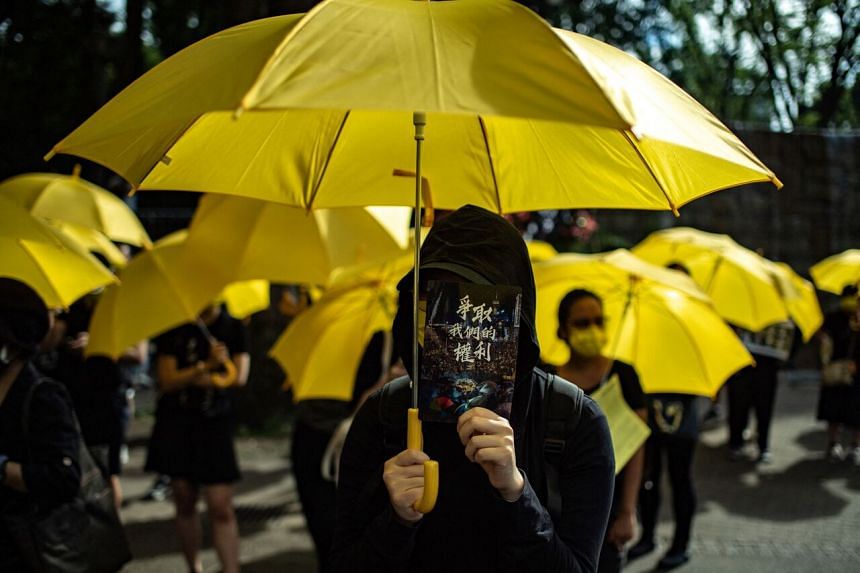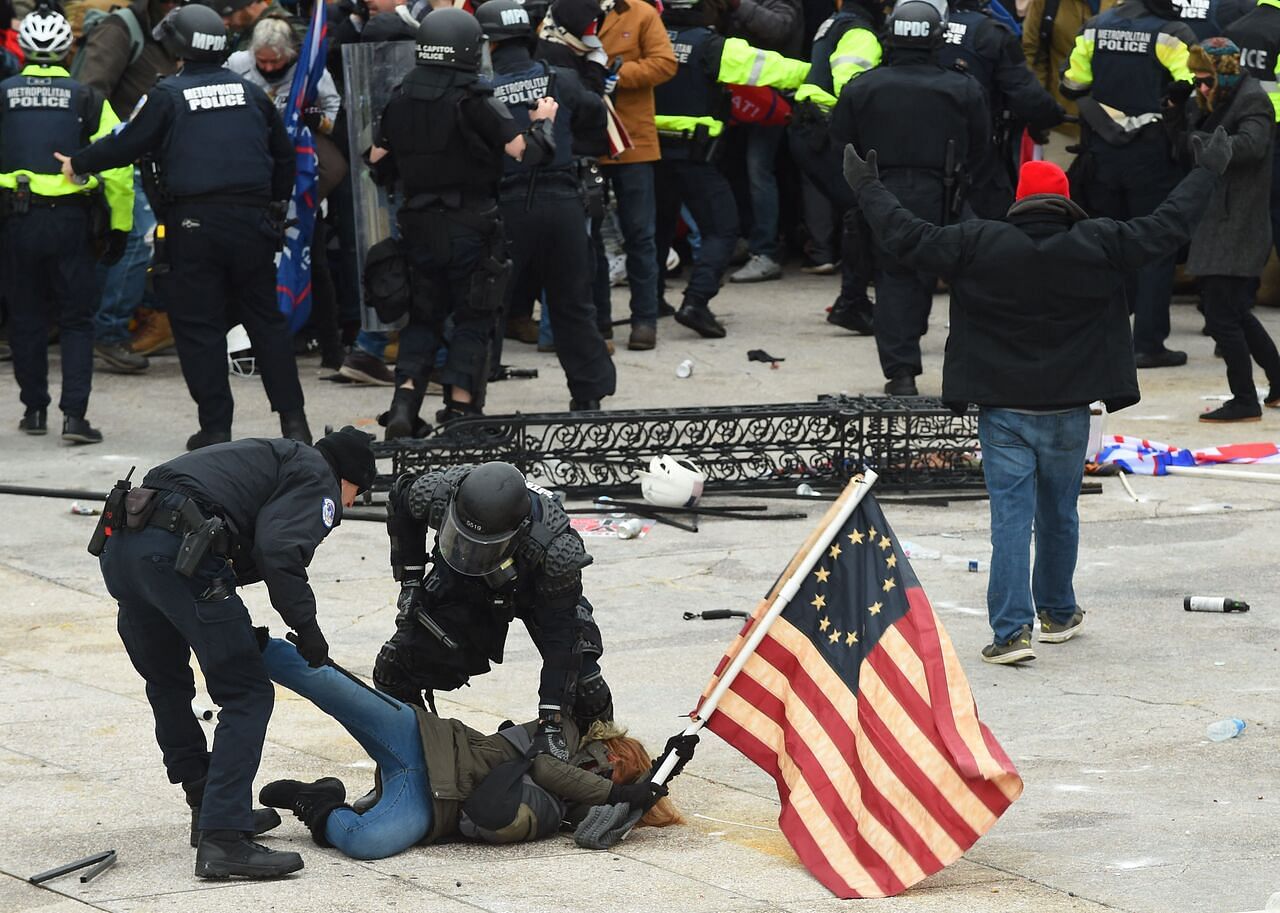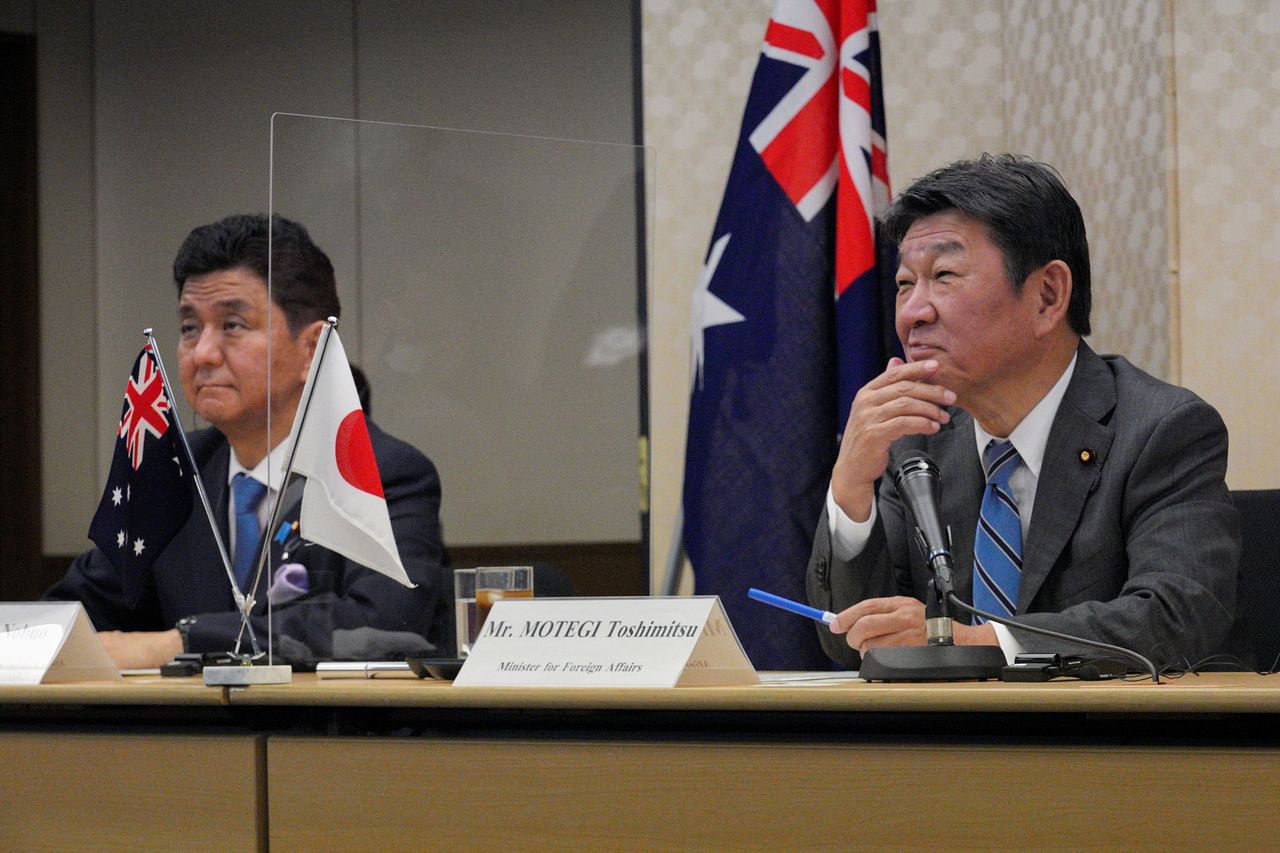President Joe Biden thinks democracy, warts and all, is the better system of governance. President Xi Jinping holds that the Chinese model is different but it delivers. ST bureaus report on how the contest is playing out in Asia.
Alliance of democracies? Small circle, Cold War mentality

As the Group of Seven (G-7) rich nations met in south-west England last weekend, a scathing illustration spoofing Leonardo da Vinci's famous The Last Supper mural painting was hotly making the rounds on China's microblog, Weibo, and getting Chinese netizens cheering.
Called The Last G-7, the adaptation posted by someone with the handle "Bantonglaoatang" shows a bald eagle wearing a top hat bearing the American flag at the centre of the table printing dollar bills out of a roll of toilet paper.
A Japanese Akita dog serves the others radioactive water, presumably from the Fukushima nuclear disaster.
Gap between President Biden's push for democracy and global opinions

In Europe on his first trip abroad since taking office, and in speeches even before he was elected to the White House, President Joe Biden framed global politics as a contest between democracies and autocracies.
At home and abroad, America has to show democracy can still deliver for its people, says Mr Biden, who has called reinvigorating democracy overseas central to his foreign policy and fundamental for America.
"No President of the United States could keep faith with the American people if they did not speak out to defend our democratic values... That's just part of the DNA of our country," Mr Biden told reporters on Wednesday (June 16), after his meeting with Russian President Vladimir Putin.
Indo-Pacific countries balance democratic unity against economic interests with China

Unlike the Cold War of the 1980s, the modern-day "democracy versus autocracy" ideological battle is not as clear-cut, given how inexorably linked democracies in the Indo-Pacific are with China on trade.
This is despite a push for greater democratic unity in the region to counter China's growing assertiveness, especially over Taiwan. The island - alongside human rights concerns - was written into the Group of Seven (G-7) communique last week, after similar language was seen in Japan's summits with the United States and the European Union.
After leaders from the North Atlantic Treaty Organisation (Nato) on Monday (June 14) pointedly said that China's rise presents "systemic challenges", Japanese Defence Minister Nobuo Kishi told the European Parliament on Thursday: "We, as those who share universal values, must align our strategic benefits and stand up together to face the challenges on a united front."
